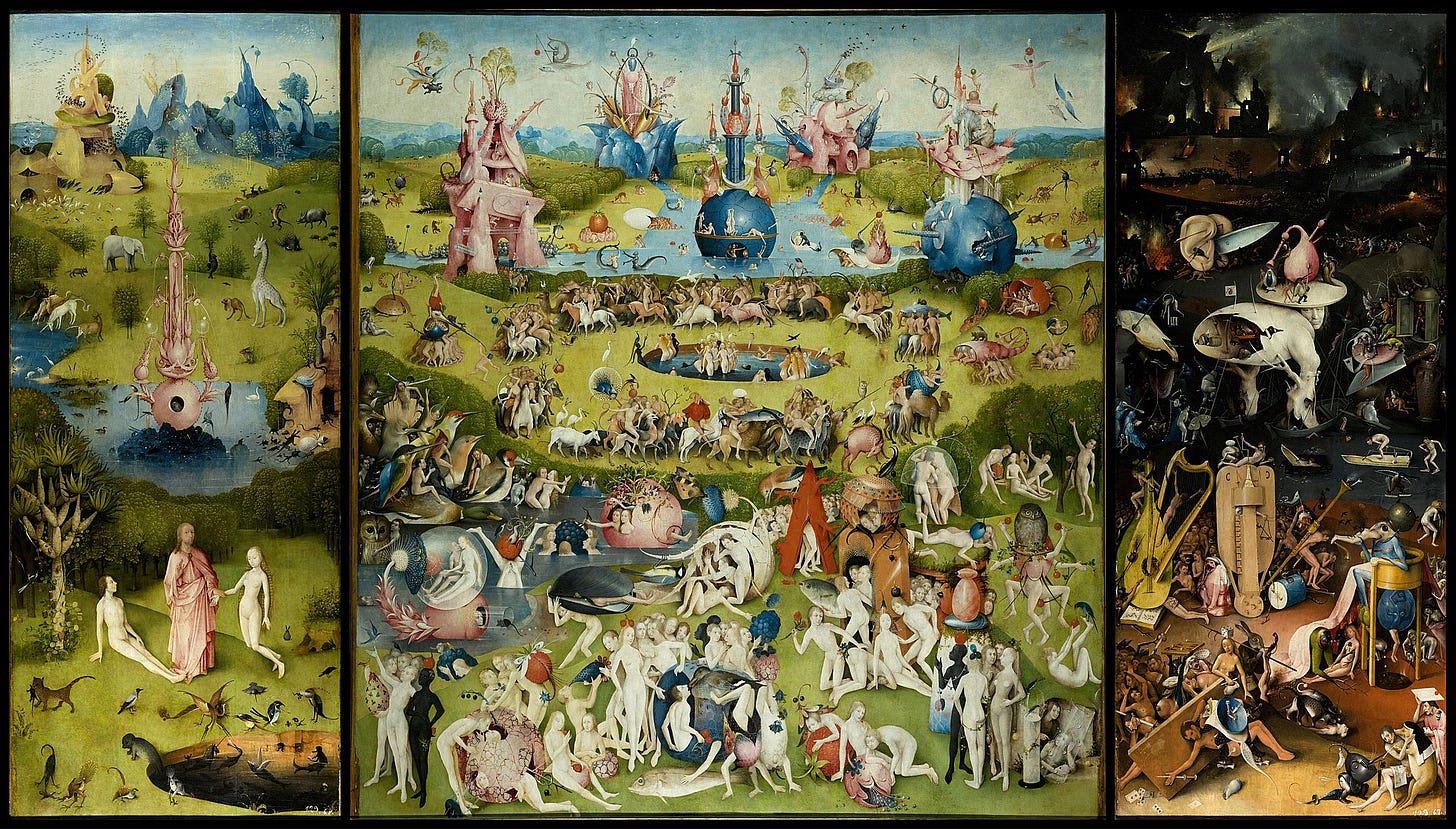I saw some old pictures of myself the other day, from back when I was 15 or 16 and thought I was transgender. With the benefit of hindsight, I didn’t exactly look like a woman, but I didn’t look like a man either. My features were neotenous, and could lean masculine or feminine depending on the light. I enjoyed looking that way at the time, because it got me a lot of attention. I was attractive, and not just to adult male perverts, but to boys and girls my age. The older I got, though, the harder it was to maintain my appearance. Even though I was on estrogen and puberty blockers, I aged. With every year, my male bone structure became more obvious, but so did the feminine features I got from the hormones. I went from sexless youthful androgyny to an unnatural androgyny built from ill-fitting pieces. By my twenties, I looked like I’d been swallowing poison for years—which I had been.
The boy in those pictures was a kid who could still grow up and become a reasonably healthy adult–a kid who might have been happy if he’d given himself a chance. Instead, he sacrificed his future for the sake of an impossible fantasy. Why? Because he didn’t believe that potential future existed. The life I envisioned was one of loneliness, hatred, collapse, and decline. The world of adulthood in the 21st century seemed to me to be a black hole of despair and meaninglessness. So many people feel it, although they give their fear different names—climate change, nuclear war, overpopulation, the Great Reset, the Great Replacement, AGI—so many people think the world, or at least their world, is going to end, even if they can’t agree on why or how. Maybe they’re right.
I didn’t want that future. I didn’t want to grow up. What was the point, I asked myself, if it’s all ending anyway? If I’m among one of the last generations of humans to live on earth, or at least to live in this civilization? If everything’s about to crumble—the oceans to rise, the cities to fall, the nukes to drop and the plagues to spread—why should I bother? I didn’t want to bring kids into the world I saw coming. I didn’t want to become a functional member of a society upholding the system which caused so much destruction and injustice, the system which was going to bring about the end of the world.
Looked at from this angle, puberty blockers are a powerful symbol: they’re the physical embodiment of an ideological rejection of the future. They’re a promise: you won’t grow up and become one of those bad people—those fascists—those capitalists—those racist homophobes—those adults.
So if these kids, encouraged by queer ideologues, are rejecting the future… what are they substituting for it? What is the society they want to build? Well, Utopia, of course. And what does Utopia look like? That’s a question without an answer. Is it Free? Of course it is! You can do anything you want with anyone you like in Utopia, so long as it’s consensual. Is it Diverse? That too! There’s no racism, misogyny, homophobia, or any kind of bigotry in Utopia. Is there War? Of course not! Utopia is post-scarcity and post-hate, there’s nothing to fight over in Utopia (and no one living in Utopia has any inherent tendency or drive towards violence). Is there Judgment in Utopia? No, none at all–although of course there would be if anyone were Bad, no one is gonna be Bad in Utopia, because Society is the only reason anyone is ever Bad. Is there Hunger in Utopia? Absolutely not. Is there Love in Utopia?
Yes. In abundance.
It’s an unrealistic, childish dream. It’s kind of beautiful: a world where everyone is good deep down, and everyone gets what they need. A world where people of all creeds and backgrounds can live side by side without hate. A world where sex and work are just forms of play. A world where you can be whoever you want, with whatever body you want. A world where childish innocence can exist forever, and happiness is eternal. A queer garden of Eden.
Trans activists project this dream onto children. Many perceive puberty as violence inflicted upon them, a nonconsensual transition into a life of stress and misery, and–consciously or unconsciously–want to protect kids from suffering the same way. Some kids, they’ve learned through experience, are more likely to want to transition than others: kids who are uncomfortable with their bodies, uncomfortable with the social roles of their sex, or who just don’t like themselves very much. These are the kids they think they can “save”. Their intentions, to them, don’t seem evil. Doctors, therapists, teachers, online groomers: all of them are doing the same thing, justifying it the same way. In their minds, they’re heroes.
They’re building Utopia, one impressionable child at a time.
from Hacker News https://ift.tt/HpbAY5r

No comments:
Post a Comment
Note: Only a member of this blog may post a comment.